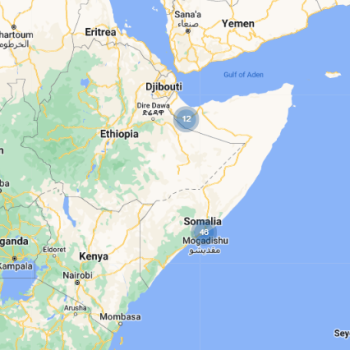This article is a guide to startup industries. The evolution of startups – innovative and often internet-based ventures – has brought rapid changes to the global market, as entrepreneurs are looking to introduce new and technologically superior services than what was until now available.
Regardless of what industry they operate in, startups are based on growth, innovation, and scalability, however, some industries are stronger or more profitable within a certain ecosystem or in general. Quantifying and highlighting the top regional and global performers based on the overall growth of the ecosystem is a complicated job. Startup Blink analyzes data from our algorithm and our global partners, CrunchBase, SEMrush, Meetup, and Coworker to provide rankings for 1000 cities and 100 countries.
Check out our Data
Are you interested in startup innovation and entrepreneurship? Are you looking for more detailed data on Startup Ecosystems in 1000 cities and 100 countries? Take a look at our pro account.
What are startup industries?
Startup industries, vertical industries, or simply verticals are business niches where the target market or interested parties are much smaller and the focus revolves around attracting a very specific subgroup with specific needs. Some businesses start out with a vertical business model and others will ultimately find it makes more sense to narrow down instead of trying to be a solution to all. This of course will heavily depend on the product and business model. When it comes to the strength of the relevant startup ecosystem, having access to vertical industry data can offer unique insights and a more rounded and informed view.
How many startup industries does Startup Blink analyze?
Using Startup Blink data, we are able to quantify and categorize the strength of 11 startup industries or verticals. In 2020, we saw the addition of a 12th vertical brought on by the response to the COVID-19 pandemic. We will briefly explore each one below and offer an overview of the key players in each startup industry.
E-commerce & Retail
Startups in the field of e-commerce and retail are moving away from traditional brick and mortar retailers and into a new era of digitization where consumers can shop with a click of a button. This is a vertical with fierce competition, with the Asia-Pacific region leading the way in sales worldwide and the pandemic has increased the already rapid growth of online retailers even further. San Francisco and Los Angeles are leading the way in the top two spots, and the constantly moving market of Beijing (6th globally) in third place.
Education
The education startup industry is another one that has been heavily impacted by the coronavirus pandemic. The digital age was already calling for tremendous changes to the way we learn and teach, as online platforms and gamification learning has started to take place. The global online education market alone is set to reach over $300 billion by 2025, an almost double increase from 2019. The Norwegian game learning platform Kahoot recently announced a $215 million round, compared to a much smaller $28 million earlier this year, that is no doubt due to the acceleration of e-learning in 2020. Russia and particularly the city of Moscow, are leading in educational startups, massively overperforming their overall rank (9th for Moscow, 17th for Russia) and claiming the 2nd position in the startup industry of education worldwide.
Energy & Environment
The areas of renewable, clean energy and green tech, are forecasted for exponential growth, due to growing concerns for rising temperature levels and a need for low-carbon alternatives. Green technology and sustainability, in particular, have predicted revenue increases of more than 500% between 2019 and 2030. Russia (3rd), Lithuania (7th), and Finland (8th) are countries with better scores in the energy and environment industry vertical than their global ranking. Edmonton (91st) and Kingston (144th globally) have also paved the way in the energy and cleantech sectors, claiming the 25th and 50th spots on this vertical respectively.
Fintech
Technological applications in the financial sector have become the standard, with fierce competition as companies try to provide the easiest new solutions to customers and shape the future of finance. The hypergrowth of neobanks such as N26, Revolut, Tandem, and Atom have resulted in rapid increases of their online customer base while New Zealand based accounting service Xero and payment platform Stripe have made it easier for businesses to manage and operate business transactions. Our Fintech Vertical partners at Findexable have ranked Singapore and Lithuania much higher than their overall startup ecosystem ranking in the leading 3rd and 4th positions respectively, showing their growing status as powerful fintech hubs. Vilnius ranked 75th overall and is at the 29th spot in the fintech vertical and 17th in hardware.
Foodtech
The foodtech startup industry is positioned for sustainable growth, as food security, food waste, and the impact of agricultural practices are evolving due to environmental concerns. In recent years, meat-free alternatives like popular vegetable-based Beyond Meat, have attracted wide support from investors and people like Bill Gates and Leonardo Di Caprio. In addition, online grocery services and delivery solutions became crucial due to the pandemic and the need for product tracing, tracking, automation, and management in all parts of the food chain. Key players in the European ecosystem are the Netherlands, Spain, Germany, and Russia. The Sunshine Coast in Australia is one of the subregions with a rapidly increasing food and agritech industry that has also admirably overperformed in the foodtech vertical this year and is well-positioned for future growth. Another regional player that has witnessed significant growth, Santa Cruz de Tenerife in Spain, has repositioned its tourism-based economy with a focus on innovation and tech, and is now in the top 100 spots for this vertical, in 67th position (global 237th).
Hardware
A fast and ever-evolving market, revenue from the hardware industry is primarily generated in China, with the US following in 2nd place, as never-ending ways to approach the market, from smartwatches to AI glasses and wearables to 3D printing are constantly being generated. Taipei City is one of the cities with a tremendous difference in its vertical ranking (8th vs 42nd overall) for hardware innovation, with a strong background in manufacturing and an overall impressive focus on AI and big data. Similarly, the city of Shenzhen in China, with a spectacular 3rd spot position in the global market, has been described as the Silicon Valley of Asia and an innovation powerhouse. In the case of Kyoto, a modest 251st global ranking is transformed to position 95, and a place amongst the Top 100 globally for hardware innovation. Kyoto has also announced a startup visa for foreign entrepreneurs that is targeting developments in AI, manufacturing, and a range of other fields.
Marketing & Sales
Another industry with no signs of stopping, marketing is about bridging the gap between business and consumer, and when successful can communicate the right message, at the right time, to the right audience to increase revenue and boost brand recognition. Notable startup ecosystems in this vertical are, in the 3rd position, the cities of Tel Aviv – a notable difference considering it is already ranked very high at number 7 on a global scale. Another top contender, Miami’s fastest-growing companies are found in the marketing industry, placing it 21 spots ahead of its global position, at number 4.
Social & Leisure
As networking giants, Facebook and Linkedin are losing members, new niche social networks entering the market, like Swiss-owned student-focused Goodwall or creative focused Behance, that was acquired by Adobe back in 2012, are growing in popularity. Community-oriented initiatives are setting the stage all over the world in general. The leisure and tourism industry was heavily hit in 2020 due to the pandemic with a long recovery period predicted ahead. The 2nd and 3rd quarter of 2020 introduced a number of private and government initiatives, aimed towards domestic leisure travellers. While international borders remained close, the shift towards local and family-focused travel activities intensified. The previous gains of startup ecosystems in this vertical will be challenged as we enter a new era of digital leisure and the travel industry reinvents itself.
Software & Data
The software and data industry has seen exponential growth in recent years and has become the basis of modern development in areas of cybersecurity, big data, and cloud software services. Big data startups are able to serve a range of businesses across industries like finance, and healthcare but many are embracing a vertical viewpoint, creating solutions that target specific needs as the demand grows. Kiev is one of the cities that has seen increases in its vertical rankings, placing 13th (32nd globally).
Transportation
The transportation industry poses a challenge between logistics, shipping, and cost-effective services. The race to take advantage of new and existing technologies, and optimize the current infrastructure is playing out at the same time as self-driving cars, drone delivery, and AI features are being tested. In terms of the rankings, transportation is one of the verticals where irregularities between the top global players and regional players really becomes evident. Shanghai has registered a jump of 8 spots to take 2nd place (10th global) and the growing goods and services ecosystem in Bangalore is represented by its current ranking at number 3, compared to the 14 position it holds on a global scale. Manila is another area worth highlighting for efforts to combat the numerous traffic problems of the sprawling capital. The Manila Area hub is overperforming by more than 60 spots in this vertical at 26. Another notable hub that is overperforming in this area is Vilnius, with the launch of a “sandbox” platform that provides a select number of startups with access to transport data from the Lithuanian Post and Railways as well as Road Maintenance, and test their ideas. Vilnius is at rank 42 compared to the global 75 in this vertical.
Health
The health industry is constantly shifting as technological advancements and the IoT (Internet of Things) are revolutionizing patient care, diagnostics, and training practices. Since the beginning of the pandemic, the health vertical is best approached from a general and covid-19 specific distinction. Slovenia is very close to a top 10 position globally in this vertical, overperforming its global rank at 35, as it continues to invest in digital health solutions and social care.
In response to the changes brought on by the pandemic, Startup Blink in cooperation with our partners, Health Innovation Exchange and the Moscow Agency of Innovations, has launched the Coronavirus Innovation Map. With deeper insights and rankings of 80 cities in 32 countries that have become innovation leaders against Covid-19. Belgium and Italy are some of the leading players overperforming their global ranking in this vertical, with the introduction of smart solutions in the area of provisions, digital solidarity, information, and support initiatives.
Why Startup Industry Verticals Matter
Most ecosystems are best served when they bet on a carefully selected number of verticals. This doesn’t mean people are unable to pursue different industry verticals, but we always recommend governments to focus on a few and become champions and experts within that space, especially if there is already an unfair advantage that can be leveraged. The differences between some of the ecosystems mentioned above and their verticals are strong proof of the success of focusing on selected verticals.
How can we help?
Startup Blink and our network of global partners can provide in-depth insights into a range of verticals to serve the market needs of your startup ecosystem and provide guidance for future steps. Our Startup Blink PRO clients can access fully customizable data on vertical ecosystems and filters for population and geographically specific data.
We are constantly looking for partners to create accurate and in-depth reports on specific verticals and consolidate your authority with branded maps covering all aspects of the specific startup industry.










People reacted to this story.
Show comments Hide commentsNotice: Function map_meta_cap was called incorrectly. When checking for the edit_comment capability, you must always check it against a specific comment. Please see Debugging in WordPress for more information. (This message was added in version 6.1.0.) in /var/www/startupblink_blog/wp-includes/functions.php on line 6031
[…] You can read more about each vertical here. […]
Comments are closed.